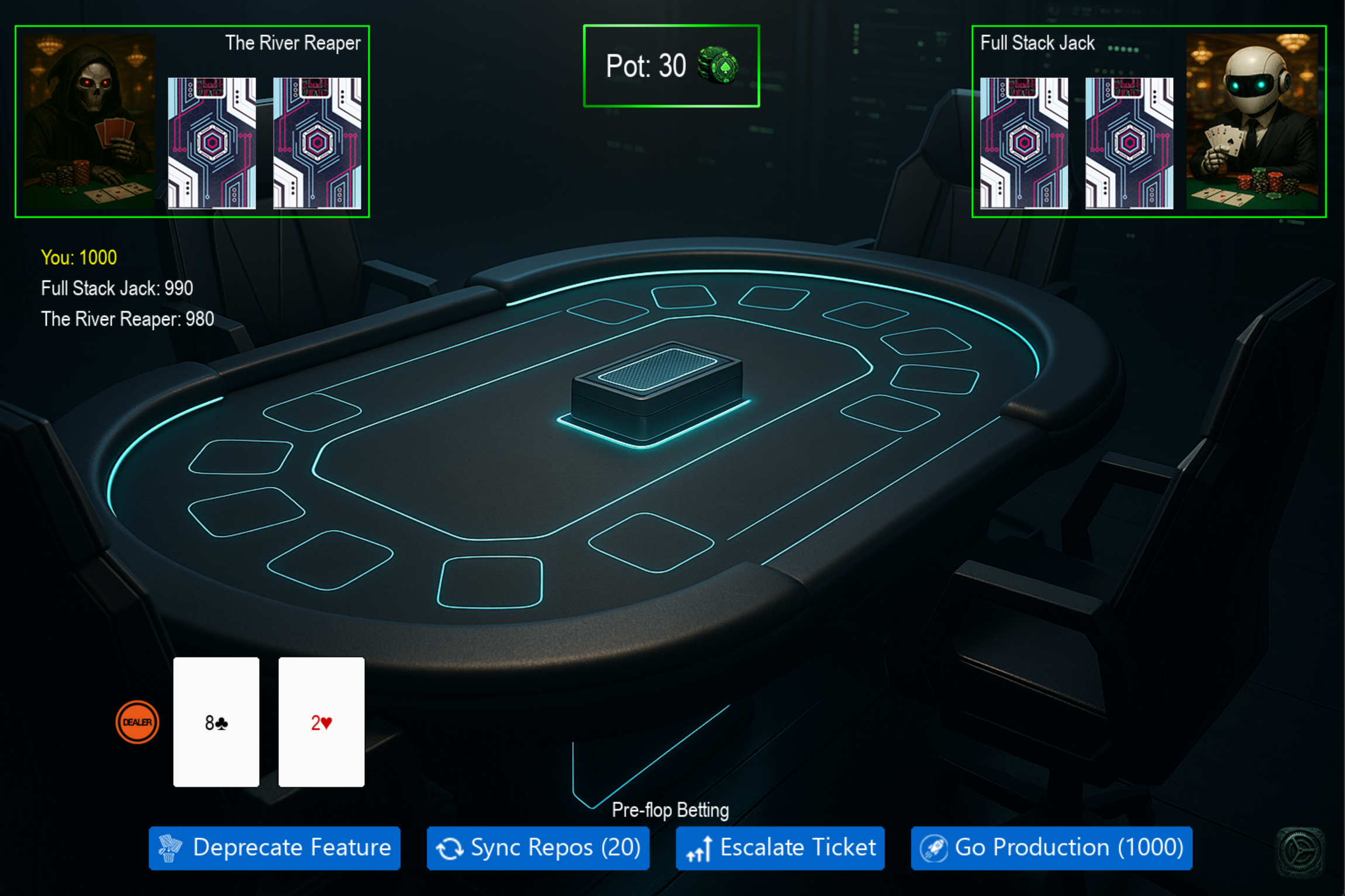After decades working in IT—spanning strategy, infrastructure, cybersecurity, and executive technology advisory—I had a deep understanding of how technology works. I could architect complex systems, evaluate platforms, and guide organizations through their digital transformations. But there was one thing I'd never done: write production code.
Like many IT professionals, I understood the logic, the patterns, the architectures—but translating that knowledge into actual, working software felt like crossing an invisible barrier. Until AI changed everything.
The AI Revolution in Development
Using AI-assisted coding tools (specifically Vibe coding and AI development assistants), I built my first complete application: IT Poker. Not a simple proof-of-concept or tutorial project, but a fully-featured Texas Hold'em poker game with intelligent AI opponents, custom animations, and a polished user interface.
This wasn't about AI writing code for me—it was about AI bridging the gap between my technical expertise and implementation. I designed the logic, defined the features, architected the systems. AI helped me translate those ideas into Python, Pygame, and over 3,500 lines of production code.
What This Means for Technology Leaders
My experience with IT Poker demonstrates something profound: AI has democratized software development. You no longer need years of coding experience to bring your technical vision to life. If you understand the problem, the architecture, and the user needs—AI can help you build it.
This is the future of technology development. Not replacing developers, but empowering experts across every domain to create solutions directly. The barrier between idea and implementation has never been lower.

